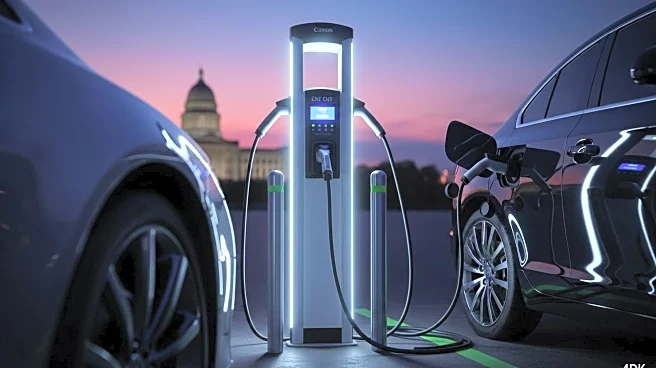What's Happening?
The conclusion of electric vehicle (EV) tax credits in the U.S. has sparked discussions about the political climate surrounding EVs. Despite the end of these incentives, experts predict that EV sales will remain stable, indicating that the market has matured beyond reliance on tax credits. The political skepticism reflects broader debates on the role of government in promoting sustainable technologies, yet industry analysts believe that consumer interest in EVs will persist due to advancements in technology and environmental awareness.
Why It's Important?
The cessation of EV tax credits marks a significant shift in U.S. policy, potentially influencing the automotive industry's strategic planning and consumer purchasing decisions. While political skepticism may challenge the growth trajectory of EVs, the industry's resilience suggests that technological innovation and environmental concerns will continue to drive demand. This development could lead to increased competition among automakers to offer more affordable and efficient EV options, impacting market dynamics and encouraging further investment in sustainable technologies.
What's Next?
Automakers may need to adjust their strategies to maintain sales momentum without the support of tax credits. This could involve enhancing vehicle features, reducing costs, or increasing marketing efforts to highlight the benefits of EVs. Policymakers and industry leaders will likely engage in discussions about alternative incentives or regulatory measures to support the transition to electric mobility. The broader implications for energy policy and environmental goals will be closely monitored as stakeholders assess the impact of this policy change.









